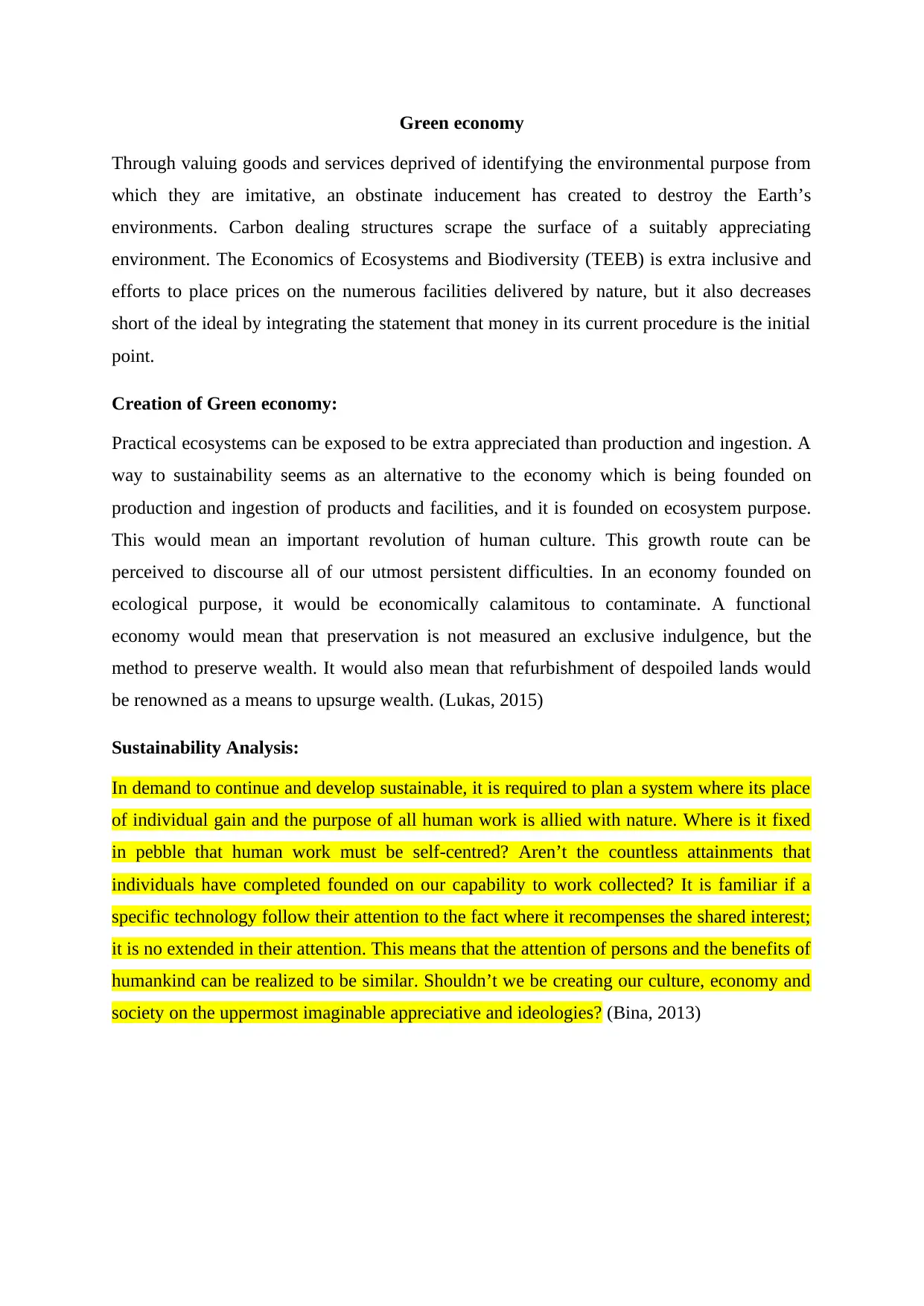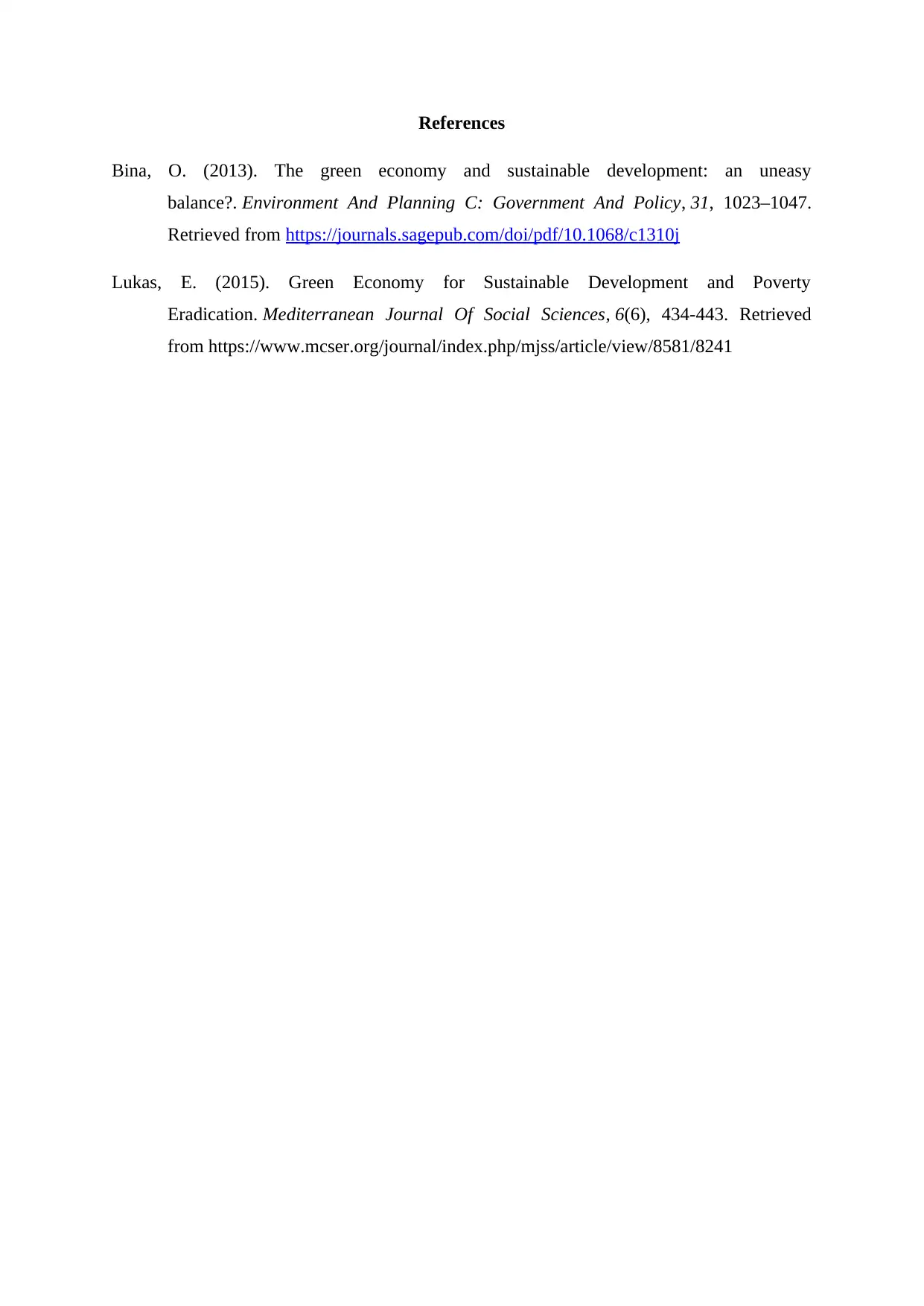Green Economy: Evaluating Sustainability and Economic Impacts Report
VerifiedAdded on 2022/08/21
|2
|441
|16
Report
AI Summary
This report examines the green economy, focusing on the integration of environmental considerations with economic development. It explores the limitations of current economic models and proposes a shift towards an ecosystem-based approach. The report highlights the importance of valuing natural resources and the need for sustainable practices, discussing the role of the Economics of Ecosystems and Biodiversity (TEEB) and the challenges of integrating environmental costs into economic systems. It emphasizes the necessity of aligning individual and collective interests to promote sustainability, arguing for a transformation of human culture and a focus on ecological principles. The report also references academic literature on the green economy and sustainable development, offering insights into the potential for a more environmentally conscious and economically viable future. The report stresses the need for a system where individual gain and the purpose of all human work is allied with nature.
1 out of 2





![[object Object]](/_next/static/media/star-bottom.7253800d.svg)